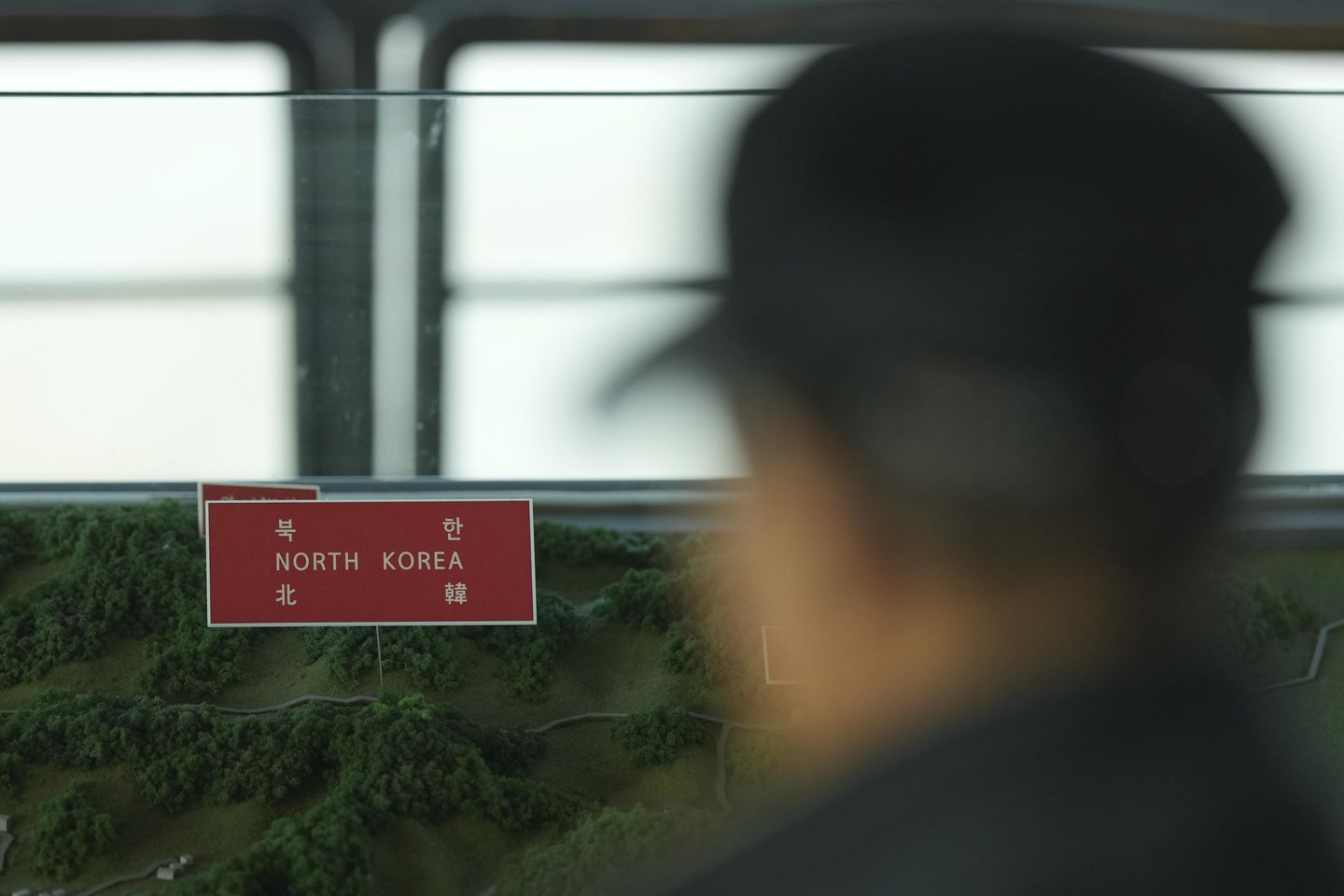
SEOUL, South Korea — North Korean defectors who tap into cross-border networks to send cash back home — a violation of sanctions imposed by the outside world on the totalitarian state — say exceptions should be made for “humanitarian” aid such as money to feed hungry family members.
Many North Koreans living and working in the South pay “brokers” to move cash and packages, both legally and illegally, north, fueling a shadowy economy that is rife with scams, exorbitant commissions and payoffs for corrupt North Korean authorities.
“Due to difficulties in escaping [North Korea], it is often the case that not all family members escape together, so North Korean escapees will send remittances through brokers,” said Lee Seung-hyun, an analyst at the nongovernmental organization Database Center for North Korean Human Rights.
Because of sanctions on the fortress state, “There is no legal remittance route,” he told a group of Seoul-based foreign reporters Tuesday.
Remittances most often consist of cash for food and daily necessities, Mr. Lee said, but the money also goes to medicines, small business and investment expenses, and in some cases is intended to pay the cost of defection for the recipient.
Mr. Lee argues that remittances are “not merely monetary transfers. … They directly support survival in North Korea.”
Government officials in Seoul differ and are taking legal action.
One broker under current legal investigation told journalists that she and her colleagues fulfill another role at a time when official inter-Korean relations are frozen.
“We are some of the few people that have contact with North Koreans on the ground and have found a way to get out info about what is happening inside the country,” said Ju Su-yun, a North Korean defector with 15 years of experience sending remittances north.
Border leaks, cash, corruption
Between the disastrous famines of the 1990s and the militant border-sealing measures Pyongyang deployed during the COVID crisis, untold numbers of North Koreans crossed and recrossed the border into China seeking, first, food and medicines and, subsequently, consumer goods for nascent market trade.
Though crackdowns have been frequent, the porousness of the border has enabled the formation of formal and informal trade, marketing and distribution networks.
The networks — some in plain sight, some underground — have multiple purposes.
Vanilla trade takes place in goods, services and labor. Black market networks smuggle people and information out of North Korea, while smuggling in South Korean pop cultural products, Chinese smartphones and even Bibles.
The underground networks are empowered by a culture of official corruption that has deep roots inside the secretive nation.
“In the past, when the State Security Bureau found that money was being sent [from South Korea], they conducted interrogations and charged North Koreans with treason and espionage, which led to house searches, disappearances and political prison camps,” Hwang In-hyong, a lawyer with Seoul legal aid group the Dongcheon Foundation, told reporters. “As time has gone on, officials realize that if they have contact with brokers, they can exploit the bribes, so they maintain close relations.”
As “the only way to send money” into North Korea is by corrupting systems inside the country, the practice is “for the greater good,” Mr. Hwang suggested.
Data on the amounts of remittances that move through these networks from the 34,000 North Korean defectors resident in South Korea is scarce, but a 2024 survey casts some light.
The study covered 362 defectors, 99% of whom escaped the North since 2000.
Of the respondents, 320 said they had been surreptitiously contacted by family members in the North for remittances, including 120 in the previous five years.
Though it has not arrived at a total figure, the Database Center for North Korean Human Rights found that the average remittance was worth about $2,232.
Globally, that may be minimal, but for poverty-stricken North Koreans, it is game-changing.
Ms. Ju and her husband, Hwang Ji-sung, who escaped North Korea in 2009, said they had sent about $215,000 worth of currency into the North since they began operating as brokers in 2010.
The route winds through China before crossing into North Korea. Neither Ms. Ju nor Mr. Hwang added detail because of the risks to their networks.
They said operations in recent years have become more difficult and less money is reaching the intended recipients.
“The commission rate has increased exponentially due to the fact that after COVID, borders closed off and there is more difficulty of freedom of movement in China and North Korea,” Ms. Ju said.
The commissions charged by their contacts, who themselves have to bribe border guards and/or officials inside North Korea, now cost approximately 40% of each remittance.
Even so, Mr. Hwang estimated that just $1,440 to $2,160 worth of South Korean currency can feed a family of four North Koreans for a year.
He said brokers have systems that ensure that remittances, ex-commissions, are delivered to the target families.
The couple are facing legal troubles in the South.
Punishing humanitarianism?
Cash payments to North Korea are sanctioned by the United Nations and the U.S. and banned under South Korean law, but authorities had largely overlooked defector remittances.
A 2021 change in South Korean investigative authority, from the National Intelligence Service to the National Police, changed that.
“Previously, the NIS looked the other way unless it involved espionage, so you had a large number of transactions of this type which were waved through,” said Peter Ward, a research fellow at the Sejong Institute, a Seoul-based think tank that focuses on security and foreign policy.
“Intelligence officers are driven by acquisition of information and police are driven by prosecutions,” Mr. Ward said. “So police pursue actions that intelligence officers would not.”
A further issue arose in 2024 with changes to foreign exchange transaction laws designed to upgrade financial technologies. The changes required those engaged in cross-border financial transactions to register with authorities.
“Ironically, deregulation aimed at fintech emphasized regulation,” said Mr. Hwang, the lawyer. “This provided opportunities for law enforcement to punish remittances.”
Ten cases of brokers have been investigated. Those cases were closed after fines were paid.
In a further three cases — including that of Ms. Ju and Mr. Hwang — guilt has not been admitted and legal fightbacks are underway.
It is risky. If the brokers lose, they could face up to five years in prison for illegal financial transactions.
“We are not here to ask you to feel sorry for us: Over the past year and three months under investigation, the police have acknowledged that there is no evidence that we have been involved in espionage or have made any profits,” said Ms. Ju. “But we must be punished so they can save face for the investigations they have done.”
Looking ahead, there is a ray of hope.
Ihn Yo-han, also known as John Linton, is a dual-nationality American-South Korean lawmaker with the conservative opposition People Power Party.
He has proposed legislation, pending in the National Assembly, to ease the legal sanctions impacting those making remittances to families in North Korea.
















